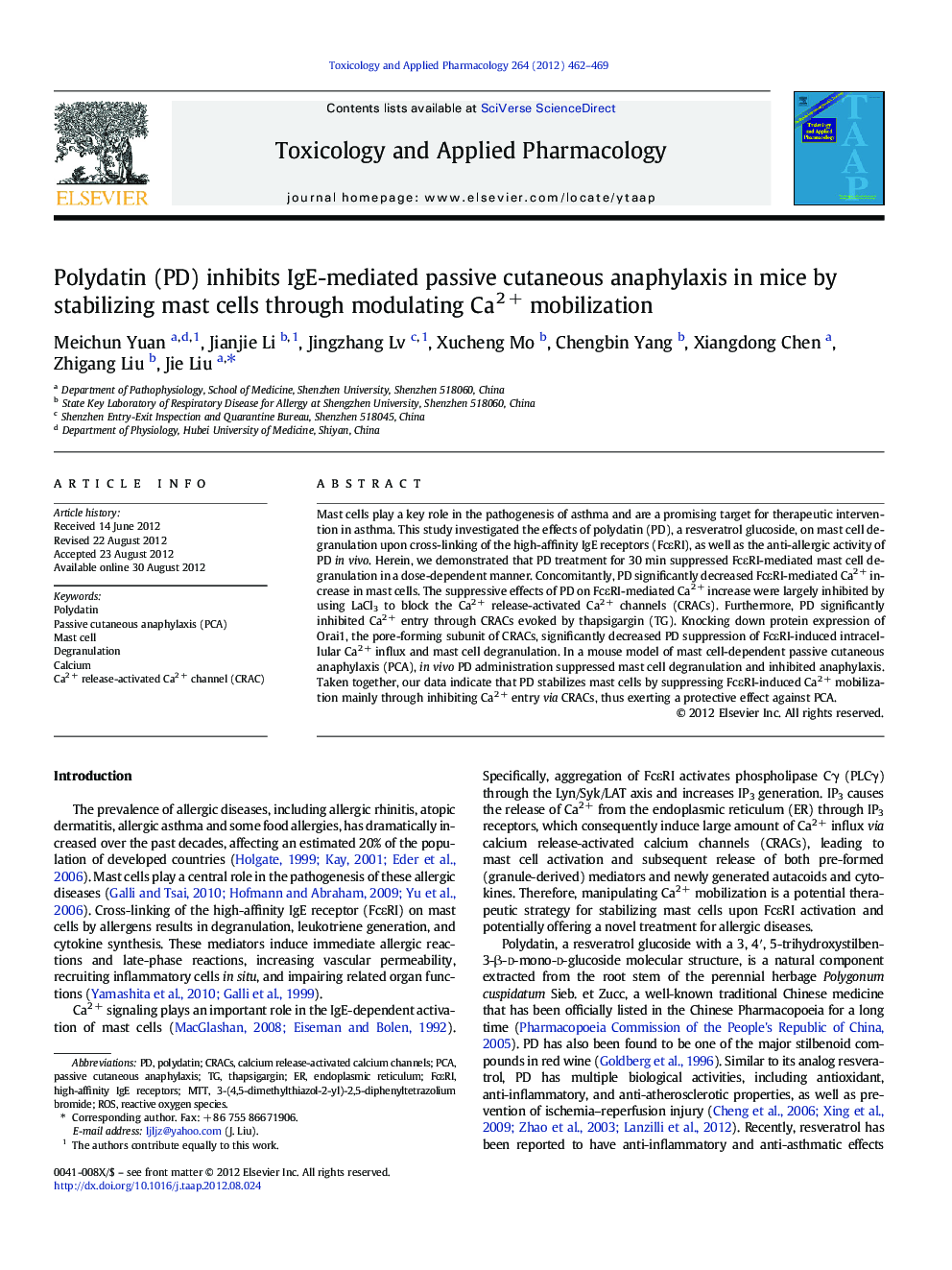| Article ID | Journal | Published Year | Pages | File Type |
|---|---|---|---|---|
| 2568892 | Toxicology and Applied Pharmacology | 2012 | 8 Pages |
Mast cells play a key role in the pathogenesis of asthma and are a promising target for therapeutic intervention in asthma. This study investigated the effects of polydatin (PD), a resveratrol glucoside, on mast cell degranulation upon cross-linking of the high-affinity IgE receptors (FcεRI), as well as the anti-allergic activity of PD in vivo. Herein, we demonstrated that PD treatment for 30 min suppressed FcεRI-mediated mast cell degranulation in a dose-dependent manner. Concomitantly, PD significantly decreased FcεRI-mediated Ca2 + increase in mast cells. The suppressive effects of PD on FcεRI-mediated Ca2 + increase were largely inhibited by using LaCl3 to block the Ca2 + release-activated Ca2 + channels (CRACs). Furthermore, PD significantly inhibited Ca2 + entry through CRACs evoked by thapsigargin (TG). Knocking down protein expression of Orai1, the pore-forming subunit of CRACs, significantly decreased PD suppression of FcεRI-induced intracellular Ca2 + influx and mast cell degranulation. In a mouse model of mast cell-dependent passive cutaneous anaphylaxis (PCA), in vivo PD administration suppressed mast cell degranulation and inhibited anaphylaxis. Taken together, our data indicate that PD stabilizes mast cells by suppressing FcεRI-induced Ca2 + mobilization mainly through inhibiting Ca2 + entry via CRACs, thus exerting a protective effect against PCA.
► Polydatin can prevent the pathogenesis of passive cutaneous anaphylaxis in mice. ► Polydatin stabilizes mast cells by decreasing FcεRI-mediated degranulation. ► Polydatin suppresses Ca2 + entry through CRAC channels in mast cells.
